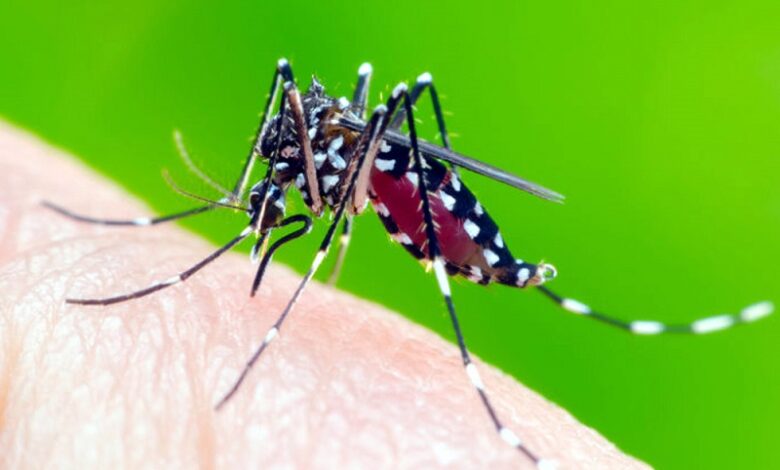Rising Sea Temperatures Linked to Dengue Epidemics, Prompting Calls for Proactive Measures

The escalating threat of global warming, driven by human-induced pollution, continues to wreak havoc on ecosystems worldwide, triggering a cascade of detrimental consequences. Among the myriad concerns, the surge in global temperatures amplifies the risk and intensity of extreme weather events, hastens the melting of polar ice caps, and disrupts critical animal life cycles and habitats.
Adding to the litany of challenges is the heightened vulnerability to disease, with mosquito-borne illnesses like dengue fever poised to expand their reach as mercury levels climb. Scientists, however, have unearthed a crucial correlation between sea temperatures and the incidence of dengue, offering a glimmer of hope in the battle against this relentless menace.
Citing findings reported by Xinhua news agency and echoed by The Weather Channel, researchers in China have uncovered a pivotal connection between anomalies in sea surface temperature and the onset of dengue epidemics. These insights promise to revolutionize the way we predict and prepare for future outbreaks, potentially affording health systems a critical window of opportunity to bolster their defenses.
Previous forecasting models have provided a three-month lead time for health authorities to brace for impending dengue outbreaks. However, the latest research could extend this crucial preparation period to a substantial six months, offering governments invaluable time to ramp up healthcare infrastructure, expand patient capacity, and stockpile essential medications.
A nine-month warning, as envisioned by these groundbreaking findings, holds the promise of significantly enhancing readiness and resilience against surging dengue cases. By leveraging insights gleaned from dengue case reports spanning 46 countries across Southeast Asia and the Americas, researchers have illuminated the intricate interplay between global climate patterns and the seasonal dynamics of dengue epidemics in both hemispheres.
The stark lessons drawn from the coronavirus pandemic underscore the imperative of proactive preparedness in averting healthcare crises. While dengue outbreaks differ from COVID-19 in transmission dynamics and treatment modalities, the strain on healthcare systems demands no less urgency in readiness and response.
Unlike the novel coronavirus, dengue cannot be transmitted directly between individuals, and existing treatment protocols offer some measure of efficacy. However, the looming specter of widespread dengue outbreaks necessitates a concerted effort to alleviate the burden on healthcare providers and ensure swift, effective intervention.
With rising temperatures worldwide creating increasingly favorable conditions for mosquito proliferation, regions previously spared the scourge of dengue must ready themselves for potential outbreaks. Projections indicate a heightened risk of mosquito-borne infections in North America and Europe, underscoring the urgent need for proactive measures to curb transmission.
According to the Central Mass Mosquito Control Project, mosquitoes thrive in temperatures exceeding 80 degrees Fahrenheit, utilizing warm water as breeding grounds for their larvae. Addressing the root causes of climate change and mitigating its impacts demand concerted action on both individual and collective fronts.
While individual lifestyle changes such as reducing carbon emissions and adopting sustainable practices can contribute to the broader effort, systemic change necessitates robust policy interventions and corporate accountability. Advocating for climate-conscious policies and supporting environmentally responsible businesses can wield substantial influence in driving meaningful progress.
In the face of escalating environmental challenges, the imperative to safeguard public health and preserve ecological integrity has never been more pressing. By heeding the insights offered by scientific research and embracing proactive measures, humanity can mitigate the looming threat posed by mosquito-borne diseases and chart a course towards a more sustainable future.






